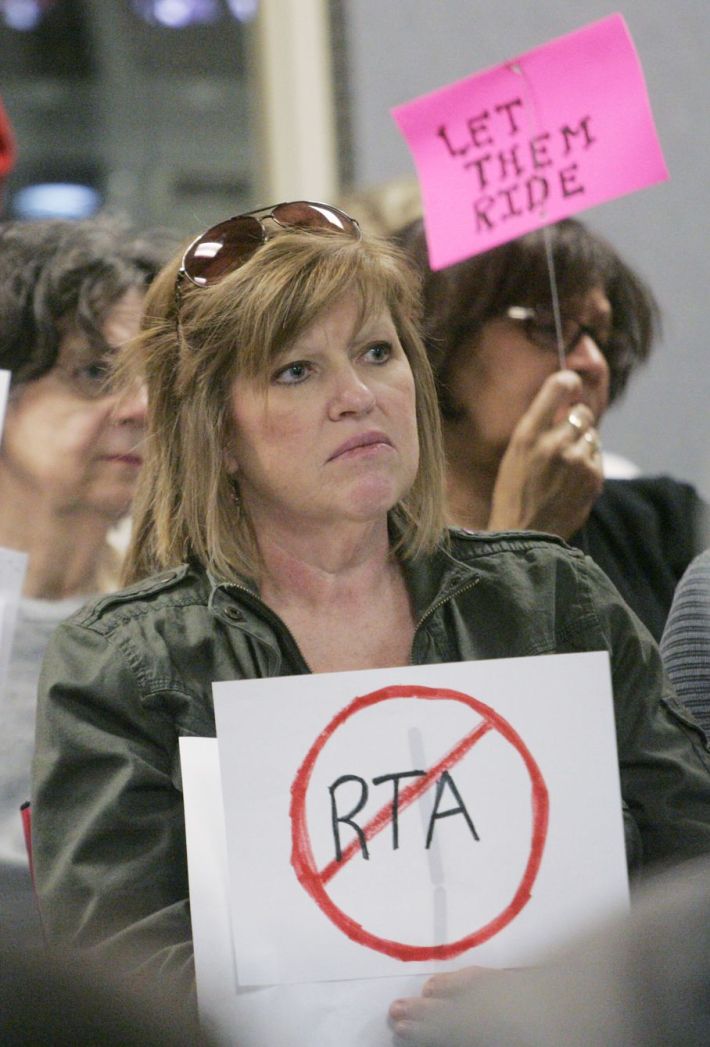It's always sad when attacks on transit are poorly disguised attempts at keeping "those folks" out. Such is the case with this story of transit obstructionism in the suburbs of Dayton, Ohio.

Beavercreek, an affluent suburb by Dayton standards, set out to establish special rules for the local transit authority, otherwise it wouldn't allow three new bus stops near a major employment center in the city. The town wanted to mandate a laundry list of special provisions, including heating and air conditioning in the bus stops and surveillance cameras. When the transit authority didn't comply, the City Council denied an application to install the stops.
Media Matters points out that transit riders in greater Dayton happen to look a little different than the folks who live in Beavercreek:
According to the 2010 census, 9 in 10 Beavercreek residents are white, but 73 percent of those who ride the Dayton RTA buses are minorities. “I can’t see anything else but it being a racial thing,” Sam Gresham, state chair of Common Cause Ohio, a public interest advocacy group, told ThinkProgress. “They don’t want African Americans going on a consistent basis to Beavercreek.”
Well, they didn't get away with it. A civil rights group called LEAD -- Leaders for Equality and Action in Dayton -- slapped Beavercreek with a civil rights complaint through the U.S. DOT. The group argued that the decision would have a disproportionate impact on African Americans.
U.S. DOT returned last month with a decision in LEAD's favor. Now the Federal Highway Administration is withholding all transportation funding from the suburb until it complies with Title VI of the Civil Rights Act, which states that federally funded agencies can't discriminate against minority groups.
You'd think that would be the end of it. But Media Matters reports that Beavercreek is balking and has yet to comply with U.S. DOT's orders:
The city council voted most recently on Friday to put off consideration of the matter until later this month. They are weighing whether to appeal the federal ruling, or perhaps whether to just defy it altogether. Appealing the ruling could cost the city hundreds of thousands of dollars in legal fees, according to a Washington D.C. lawyer the council hired.





